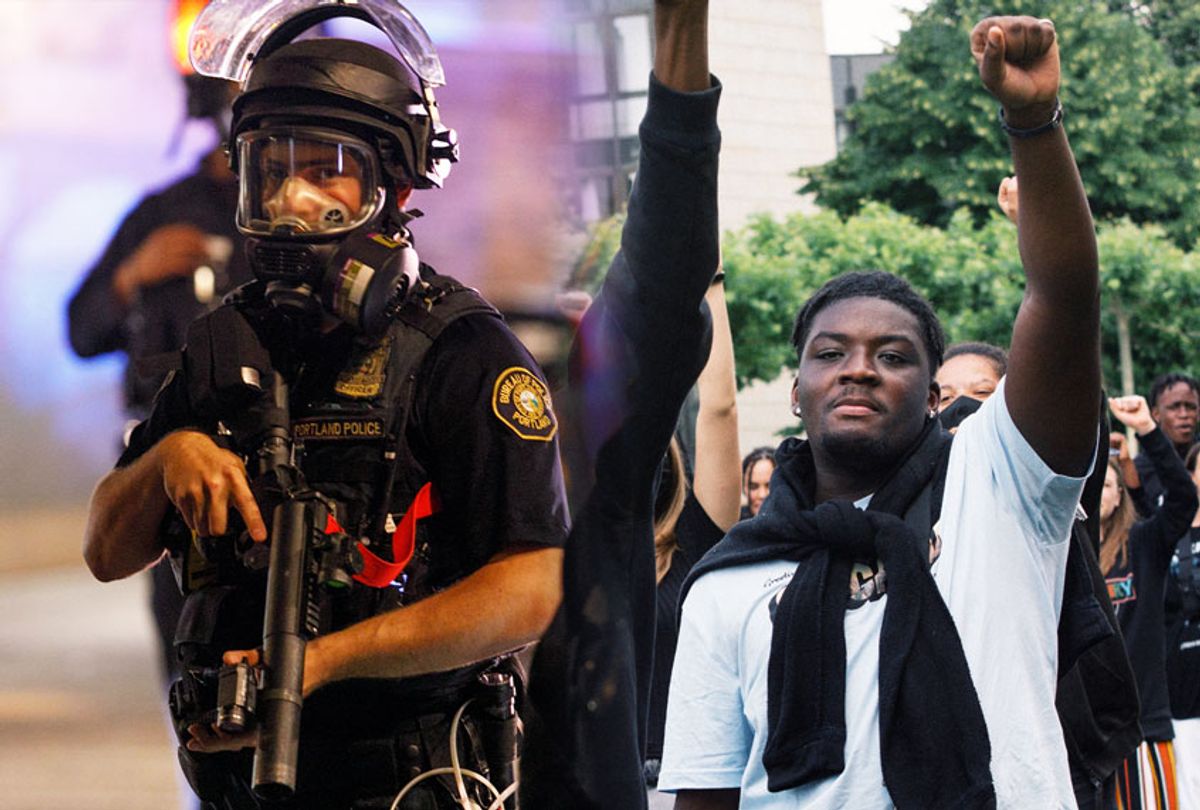Nearly two years after demonstrators and police clashed in Austin during nationwide protests sparked by the murder of George Floyd, a Travis County grand jury on Thursday indicted at least nine officers accused of excessive force and Austin officials agreed to a $10 million settlement with two men shot by police with beanbag rounds.
"We believe many protesters injured by law enforcement officers during the protest were innocent bystanders. We also believe that the overwhelming majority of victims in the incidents that were investigated suffered significant injuries," Travis County District Attorney José Garza said during a Thursday press conference announcing the indictments. "Some will never fully recover."
More officers could be indicted, but the Travis County District Attorney's office has not announced the final tally. Last week, the Austin American-Statesman reported that the grand jury was considering charges for up to 18 officers.
The names of the officers being indicted are not yet known. Travis County District Attorney José Garza said during a Thursday press conference that his office is prohibited by law to disclose details of an indictment until that person is arrested and booked into jail.
"We do anticipate that many indictments will be forthcoming in the days ahead," Garza said.
The cases will be argued in front of a judge before a verdict is handed out. The cases will probably take months or years to resolve.
In addition, under a settlement unanimously approved Thursday by the Austin City Council, demonstrator Justin Howell will receive $8 million — the highest amount ever awarded in an excessive force case involving an Austin police officer, the Statesman reported. Anthony Evans, another protester, will get $2 million.
Both men sued the city after suffering severe head injuries in May 2020, when Austin police officers fired on demonstrators protesting police brutality in the wake of the police killings of George Floyd in Minneapolis and Michael Ramos in Austin.
Howell, then a 20-year-old Texas State University student, had a fractured skull and brain damage, his brother said at the time. The same weekend, Austin police fired on Evans as he walked away from a demonstration, fracturing his jaw, according to news reports.
"Today's settlement reminds us of a difficult and painful moment for our city," Austin Mayor Steve Adler said in a tweet. "No one should be injured while exercising their constitutional right to protest."
Even the council's staunchest police allies approved of the settlement. Austin City Council Member Mackenzie Kelly said the Austin Police Department "instructed officers to use tools that were intended to help manage the crowd — for everyone's safety, including officers," but she still voted in favor of the settlement.
"I don't believe that the injuries sustained by Mr. Evans and Mr. Howell were the intended results," Kelly said in a statement. "Regardless, these men were seriously injured, and I think it is right for the City to pay the damages."
Austin Police Chief Joe Chacon — who took the job more than a year after the protests — said in a statement he understands why City Council members opted to settle the case and expressed sympathy for Howell and Evans, though he didn't name them.
Chacon said APD "did not anticipate the injuries that occurred from the use of the less-lethal rounds," which the department later decided to stop using.
"In hindsight, we were not prepared for the heightened frustration felt by so many community members, nor the size and scope of the crowds," the chief said.
The violence that weekend spurred more than a dozen lawsuits against the city and police officers by people injured by police, the Statesman reported. So far, the city has settled three of those lawsuits.
Tens of thousands of people protested Floyd's death in Austin for over a week in May 2020. Floyd, a Black man, was killed by a white Minneapolis police officer, Derek Chauvin, after he kneeled on Floyd's neck for over nine minutes in May 2020. Chauvin was found guilty of murder last year.
Floyd's death spurred a nationwide outcry against police brutality against Black people, who are killed at disproportionately higher rates in police custody. Texans protested across the state, including in Austin, Houston, Dallas, San Antonio and Fort Worth.
Cities and communities in Texas continue to grapple with the aggressive tactics that police waged against protesters that year. Police officers all over Texas and the nation have faced charges for how they dealt with protesters.
Law enforcement officials have defended the use of force during the protests, saying it was warranted amid the chaos. They have pointed to reports of people throwing bottles and rocks at officers, sometimes injuring them, damaging police cars and breaking into stores.
But advocates and protesters expressed outrage over police officers turning to violent crowd-control measures, especially in light of what they were protesting.
Last week, the Dallas county attorney's office issued warrants for two Dallas police officers' arrest for their alleged use of force during the 2020 racial justice protests in that city.



Shares